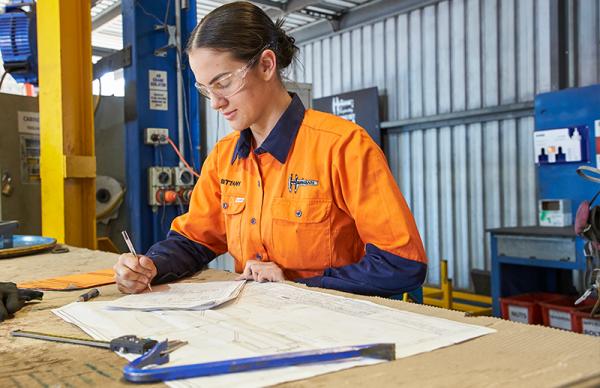
Materials technician
Materials technicians work with materials engineers to test the behaviour of materials such as minerals, metals, ceramics and polymers. They examine and test the performance of materials used in machinery and structures to find possible faults such as cracks, flaws, corrosion and other imperfections.
Materials technicians may test materials to eliminate faults, improve the qualities of existing materials, and assess the safety and environmental impact of materials. They may work in the construction, transport, metal fabrication and manufacturing industries across the State.
Working conditions
Materials technicians may work in offices, testing laboratories, manufacturing plants or workshops. They may be required to travel to sites to test materials. In line with occupational health and safety requirements, materials technicians may use a range of personal protective equipment (PPE), which will vary depending on the specific work being carried out.
Tools and technologies
Materials technicians may use non-destructive testing techniques to inspect materials, such as X-rays, gamma rays and ultrasonography, to find internal faults in structures. They may inspect welds in pressure vessels and steel structures with fibre optic cameras. They may also use electrical eddy current testing to measure the differences in the flow of current to detect flaws in welds and other conductive materials. They may also use thermal imaging to find defects in concrete.
Education and training
To become a materials technician you usually need to gain a qualification in engineering - technical, engineering, laboratory techniques or laboratory technology.
Certificate IV in Laboratory Techniques, the Diploma of Laboratory Technology, the Diploma of Engineering – Technical and the Advanced Diploma of Engineering are offered at TAFE colleges and other registered training organisations throughout Western Australia. Browse courses through Jobs and Skills WA and search on the My Skills website to find a registered provider near you.
You can also undertake a traineeship in laboratory techniques (level 4), laboratory technology (level 5), metallurgical technician (level 5), metallurgical technician (advanced) (level 6), manufacturing technician – metallurgy, manufacturing technologist – metallurgy, polymer technology (level 4) and engineering assistant. The traineeships usually take 12 to 36 months to complete.

Free support and assistance
Your local jobs and Skills Centre can provide free information, support and assistance to help you decide on the best training options to meet your goals.
Disclaimer
The information presented on the occupation profiles within this website is offered as a guide only.


